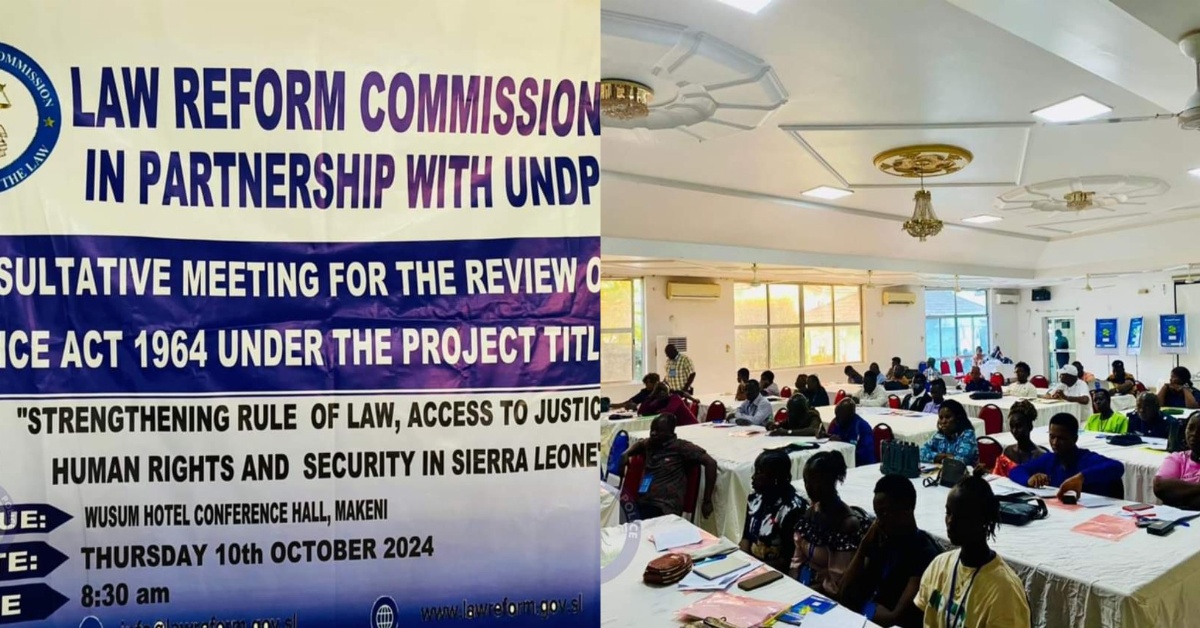The Law Reform Commission (LRC) of Sierra Leone has initiated a nationwide consultation process to review and update the Police Act of 1964.
This effort aims to modernize the country’s policing framework, aligning it with contemporary human rights standards and addressing the evolving security needs of Sierra Leone.
The consultation series, supported by the United Nations Development Programme (UNDP) in partnership with the Government of Sierra Leone, is designed to gather input from citizens across the nation.
The goal is to create a more inclusive, fair, and transparent police force that reflects current societal values, including gender equality and the protection of human rights.
The consultations began in the Eastern and Southern regions, with the first meetings held in Kenema and Bo. These sessions saw robust participation from local communities, where citizens offered valuable feedback on the changes they want to see in police practices and governance.
Topics discussed included the need for accountability, respect for civil liberties, and community-based policing.
On October 10, 2024, the Commission expanded its outreach to the Northern region, holding consultative sessions at the Wusum Hotel in Makeni.
As in previous locations, participants in Makeni engaged in discussions about how to make the police force more responsive to the needs of the population, particularly in areas related to public safety, crime prevention, and rights protection.
This review of the 1964 Police Act is seen as crucial to addressing long-standing concerns about law enforcement in Sierra Leone. The outdated provisions of the Act are being reexamined to ensure they conform to international standards and the realities of modern policing.
The reform process is expected to continue with further consultations across other regions, with the Commission committed to incorporating the views of citizens into the final recommendations.
The outcomes of these meetings will shape the proposed amendments to the Police Act, ensuring that the law reflects the voices and concerns of Sierra Leoneans from all walks of life.
Details on the forthcoming sessions and specific reform proposals will be shared as the consultations progress.











